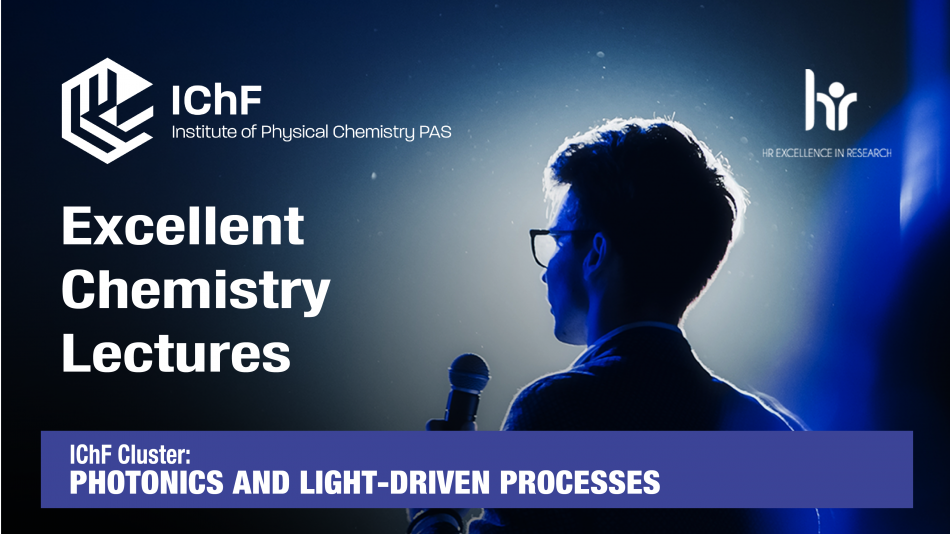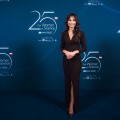Invitation to Cluster’s 2 Excellence Chemistry Lecture titled: Computational protocols for molecular structure and spectroscopy
Czas czytania: około 3 minuty

You are cordially invited to a talk organized by Cluster 2, titled: “Photonics and Light - Driven Processes”.
Title of the lecture: Computational protocols for molecular structure and spectroscopy
Malgorzata Biczysko
Faculty of Chemistry, University of Wrocław
e-mail malgorzata.biczysko@uwr.edu.pl, malgo.biczysko@gmail.com
Molecular systems of increasing size and complexity from small prebiotic molecules of astrochemical interest [1,2], medium size chromophores important for technology applications [3] to larger bio-molecules such as proteins [4,5] are nowadays studied by broad range of experimental techniques, involving different parts of electromagnetic spectrum [6], as depicted in Figure 1. However, it is seldom straightforward to link the rich experimental data to the desired information on the specific structure and properties of complex molecular systems.
I will discuss status and perspective of the project aimed at development, validation and application of QM based computational protocols supporting to decode and analyze experimental data based on light-matter interaction.
References
- Y. Zhao, M. Hochlaf, M. Biczysko “Identification of DNA bases and their cations in Astrochemical environments: Computational spectroscopy of Thymine as a test case” Front. Astron. Space Sci. 8, 757007 DOI: 10.3389/fspas.2021.757007 (2021)
- X. Yanting, M. Biczysko “Toward the identification of cyano-astroCOMs via vibrational features: benzonitrile as a test case” Front. Chem. 12, 1439194, DOI: 10.3389/fchem.2024.1439194 (2024)
- X. Li, X. Yin, Y-L. Bai, M. Biczysko “Interpretation and prediction of optical properties: novel fluorescent dyes as a test case” Front. Phys. 11, 1236987, DOI: 10.3389/fphy.2023.1236987 (2023)
- Y. Wang, H. Kruse, N.W. Moriarty, M.P. Waller, P.V. Afonine, M. Biczysko “Optimal clustering for quantum refinement of biomolecular structures: Q|R #4” Theo. Chem. Acc. 142, 100, DOI:10.1007/s00214-023-03046-0 (2023)
- Y. Liu, M. Biczysko, N.W. Moriarty „A radical approach to radicals” Acta Cryst. D78, 43-51, DOI: 10.1107/S2059798321010809 (2022)
- V. Barone, S. Alessandrini, M. Biczysko, J. R. Cheeseman, D. C. Clary, A. B. McCoy, R. DiRisio, F. Neese, M. Melosso, C. Puzzarini “Computational molecular spectroscopy” Nat. Rev. Methods Primers 1, 38, DOI: 10.1038/s43586-021-00034-1 (2021)

Malgorzata Biczysko is professor at Faculty of Chemistry Wrocław University in Poland. She obtained her Master degree in Chemistry in 1994 and Ph.D. in Theoretical Chemistry in 2000 from the University of Wroclaw in Poland. She has been an EU Marie Curie Networks post-doc at the Universities of Bologna, Helsinki, Coimbra, Naples and Scuola Normale Superiore in Pisa, as well as a researcher at Italian Research Council (ICCOM-CNR). In 2014 she has been awarded the Italian National Scientific Qualification as an associate professor in Physical Chemistry. Between 2015-2024 she worked at International Center for Quantum and Molecular Structures at Shanghai University, first as associate professor and since 2020 as full professor. She is co-author of over 100 articles in ISI journals and 5 book chapters with an h-factor of 42. She is also Specialty Chief Editor of Chemical PhysicsPhysical Chemistry@Frontiers, Associate Editor of Astrochemistry section in Astronomy and Space Sciences and member of Editorial Board of PhysChemChemPhys (RSC) and International Journal of Quantum Chemistry (Wiley), Scientific Committee of IMAMPC, AMOC and QIF Conferences and international Ph.D. Board at Scuola Normale Superiore.
Malgorzata Biczysko works on the development of computational protocols for molecular structure and spectroscopy for molecular systems ranging from small molecules and complexes in the gas phase to large biomolecules, and hybrid organic-inorganic systems. Her main research interests are the development and validation of computational protocols to simulate vibrational and vibronic spectra for medium-sized non-periodic molecular systems of increasing complexity, featuring dispersion interactions, hydrogen bonding, variable local stereochemistry-conformation, and chirality. Recently she also develops integrated computational model for protein structure and function as a part of the Quantum Refinement project. These methods are exploited in Astro, Atmospheric and Biochemistry as well as Soft Smart Materials applications.
- Data wpisu: 29.11.2024






